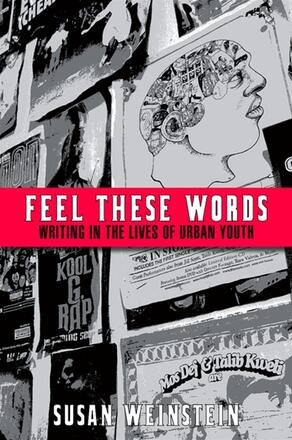
Feel These Words
Writing in the Lives of Urban Youth
Alternative formats available from:
An in-depth look at the creative writing practices of nine Chicago youths.
Description
Feel These Words is the story of nine young people from Chicago—Jig, Crazy, TeTe, Mekanism, Robbie, Marta, Patricia, Jose, and Dave—who regularly write poetry and/or song lyrics, but not for school. The Writers, as author Susan Weinstein calls them, are skilled in a variety of literacy-centered discourses through which they develop sophisticated understandings of core rhetorical issues and explore concepts of identity, social positioning, gender roles, and sexuality. Despite a deep engagement with imaginative composition, their work regularly goes unrecognized or is devalued due to the normative trends in standardized curricula and testing. Weinstein argues that this devaluation exists because their writing is informed by discourses that use language, forms, and styles different from—and at times at odds with—the mainstream. She explores the ways in which educators can focus not simply on what they believe kids need to be taught, but also on what makes them want to learn.
Susan Weinstein is Assistant Professor of English at Louisiana State University.
Reviews
"Weinstein studies the writing lives of nine teenagers/young adults … [and] effectively challenges the assumption that academic literacy is the norm. Weinstein provides an important study demonstrating how marginalized youth use literacy to understand their lives in a social and cultural manner. " — CHOICE
"A work that captures the elusive nature of writing for today's youth, this narrative lets us in on how young people see writing in their multiple worlds. Keenly aware of ways to create a spectrum of types and purposes of writing, the young composers, entrepreneurs, and community members portrayed here will give writing teachers, journalism leaders, and the entertainment industry a new perspective. " — Shirley Brice Heath, Stanford University